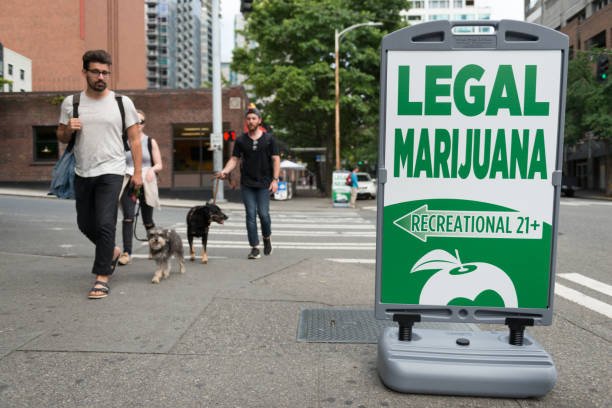
[av_one_full first min_height='' vertical_alignment='' space='' custom_margin='' margin='0px' row_boxshadow='' row_boxshadow_color='' row_boxshadow_width='10' link='' linktarget='' link_hover='' padding='0px' highlight='' highlight_size='' border='' border_color='' radius='0px' column_boxshadow='' column_boxshadow_color='' column_boxshadow_width='10' background='bg_color' background_color='' background_gradient_color1='' background_gradient_color2='' background_gradient_direction='vertical' src='' background_position='top left' background_repeat='no-repeat' animation='' mobile_breaking='' mobile_display='' av_uid='av-36hz8pg']
[av_image src=' ' attachment='42189' attachment_size='full' align='center' styling='' hover='' link='' target='' caption='' font_size='' appearance='' overlay_opacity='0.4' overlay_color='#000000' overlay_text_color='#ffffff' copyright='' animation='no-animation' av_uid='av-jp40grrk' admin_preview_bg=''][/av_image]
' attachment='42189' attachment_size='full' align='center' styling='' hover='' link='' target='' caption='' font_size='' appearance='' overlay_opacity='0.4' overlay_color='#000000' overlay_text_color='#ffffff' copyright='' animation='no-animation' av_uid='av-jp40grrk' admin_preview_bg=''][/av_image]
[av_textblock size='' font_color='' color='' av-medium-font-size='' av-small-font-size='' av-mini-font-size='' av_uid='av-2r3qto4' admin_preview_bg='']
Put simply, marijuana tolerance develops from heavy use, when our THC receptors become less sensitive. While this is a real bummer for heavy recreational users, medical patients are a different story.
Obviously, many of us think that if THC will make you less high over time, weed's beneficial effects will fade as well; however, nothing could be further from the truth.
In fact, cannabis tolerance might not be such a bad thing for those undergoing treatment.
What is Marijuana Tolerance?
If you use weed for any reason, marijuana tolerance is like the lazy, boisterous guy at the office. He wastes resources and seems to get worse every day. Eventually, all you can think about is how to get rid of him.
Put simply, marijuana tolerance occurs when your brain starts to get used to its dose of THC. It then needs more to have the same euphoric effect. This just keeps going, seemingly forever, until you have to smoke several bowls just to get high.
Unfortunately, weed isn't cheap. Legal weed is pricier, but better, and - most importantly - legal. Regardless, the issue could become a real problem, especially if you depend on it for medical use.
Let's take a closer look.
Cannabis Tolerance
[/av_textblock]
[av_content_slider heading='Choose Medical or Recreational using the arrows' columns='1' animation='fade' navigation='dots' autoplay='false' interval='5' font_color='custom' color='' av_uid='av-jopp5fwx']
[av_content_slide title='Medial Users' link='' linktarget='' av_uid='av-q2c1mc']

How Will Cannabis Tolerance Affect Me Medically?
Cannabis tolerance is a nightmare for wake-and-bakers everywhere. But while their concerns are frivolous, yours are serious. Conditions like cancer, epilepsy, and even migraines require large doses of THC and/or CBD to work.
Imagine these effects getting weaker and weaker. While pot flowers grow on plants, money certainly doesn't. Consequently, there comes a point where your wallet isn't deep enough to keep up.
Well, keep your Benjamins in your pocket, pot's medical benefits aren't going to fizzle out. While heavy use leads to a tolerance for the high, the presence of cannabinoids and terpenes remains just as strong in your system.
The Pharmaceutical Difference
There's no denying that there are some impressive medications out there. Many people have excellent luck, while others stay the same or worsen.
But, if there's one thing many conventional drugs have in common, it's that patients can build a tolerance. Epilepsy medication is a classic example. Yours truly initially had excellent results with just 50mg of Lamotrigine decades ago.
Now, many years - and seizures - later, it's finally leveled out at 200mg - a somewhat high dose, according to doctors. The problem is that this medication is also used to treat patients who have bipolar disorder.
While having an unexpected seizure sucks, we can imagine that suddenly experiencing bipolar's psychological roller coaster after months or years of control is traumatic, to say the least.
The same applies to virtually any condition relying on pharmaceutical drugs for treatment. Fortunately, many people see this and explore medical cannabis. But for those living where it's illegal, their choices are a bit limited.

Could Cannabis Tolerance Be a Good Thing?

If you're the kind of person who needs medical pot, but also enjoys the high as a side benefit, then that's always a bonus; however, if being high isn't your thing, treating your condition with cannabis is probably off-putting.
Fear not, however. Like many drugs, pot is something patients need to ease themselves into. If you're willing to weather the storm, you'll tolerate the high soon enough.
How Long Does it Take to Build a Tolerance?
Unfortunately, there's no specific answer. A lot of factors come into play, like age, sex, experience and amount consumed. Among other things; however, it appears that dosage is the main link here. The more bongs you rip, the faster you'll resist.
Keep in mind that men and women experience pot differently. Men feel it less intensely and take more time to become tolerant. Women, on the other hand, feel intensity change depending on hormone levels, but are still generally more sensitive and therefore become tolerant faster.
How to Build a Tolerance
Considering many patients require huge amounts of THC and/or CBD to treat their condition, building a tolerance is more essential than ever. Just because you're ill doesn't mean you don't have a job to handle or a family to support. The key is a slow introduction at specific points.
Start Low and Go Slow - At the Right Time

A common workaround for avoiding highs during daily activities is to wait until the evening; however, this means that patients have to suffer through their condition throughout the day - something that will be uncomfortable or impossible.
You need to get used to medicating and functioning. One way to do this is to take a partial dose during a time of activity that requires alertness, but isn't crucial, such as household chores.
If there aren't enough opportunities, you can always switch to Plan "B". In this case, medicate during critical times - like at work - but do so in microdoses. We're talking a fraction of a fraction - as little as 1/20th of a normal dose.
This ensures a steady intake of medical weed without intoxication. While it may not offer much in terms of therapeutic effects, it'll at least get the ball rolling to help you become used to cannabis during the day.
Eventually, you'll discover relief at regular doses with little to no effect on performance.
Get Clearance
If you're concerned that your medical quest might affect you at work, see if you can take a leave of absence. If you're comfortable, you can be direct with your employer about it. If not, a simple generic doctor's note is all you need, since your boss has no right to access your health information.

Switch Roles

If your job involves heavy machinery, like construction or factory work, then being even remotely high is a huge no-no; however, that doesn't mean you can't be temporarily assigned to another role. Maybe this is your chance to job-shadow a senior employee and build toward that promotion you want.
Or perhaps you want to dip your feet into something new. Even if your job isn't dangerous, this is a great option to look into. Any company worth its salt will do that.
[/av_content_slide]
[av_content_slide title='Recreational Users' link='' linktarget='' av_uid='av-vf8hmc']

How Will Cannabis Tolerance Affect Me Recreationally?

Marijuana tolerance is something that all experienced users have to deal with. Eventually, we have two extremes. There's the smoker who can go through an ounce a week, while on the other end we have the person who buys five grams and doesn't see his or her dealer or dispensary for a month.
Does the idea of having five grams lasting you 30 days seem impossible? "Nobody can stretch their weed out that long," you say. Well, guess what, you just met one of them, and you're reading his article right now.
Want to know the kicker? Three grams used to be enough. If a casual user can gradually build marijuana tolerance, then it's no surprise that the Cheech and Chongs of the world go through their green like kale at a vegan restaurant.
Unfortunately, this means you need a lot more weed to get high. Needless to say, it would be nice to return to the days when - like yours truly - a single joint or bowl would leave you baked for hours. The good news is that it's actually possible to do.
If you happen to be a heavy user who would rather still have some rent money after buying your latest stash, then it's important to understand what marijuana tolerance is, and what you can do to fix it.

How Does Marijuana Tolerance Happen?

In order to get high, your brain needs to detect and process the THC. Fortunately, it has receptors to do that job. Specifically known as CB1 receptors, these are basically the gateway for THC's effects.
THC hits the receptors, you get high; simple as that.
Now, imagine the THC receptors like your front door. The same friends come knocking to visit every single day, sometimes on multiple occasions. No matter how much you like that person, you'll get sick of their company.
The same goes for CB1 receptors. When they keep being bombarded with THC, they become "tired" of it as the THC dulls the receptors. The more weed you use, the duller they'll get.
How Long Before I Develop Marijuana Tolerance?
Developing marijuana tolerance does take a bit of time, but it varies based on a lot of things. These include the amount consumed, height, weight and frequency. Most interestingly, though, sex is a huge contributing factor.
It appears that new female users are much more sensitive to pot than men; however, they also develop a tolerance much more quickly. The key lies in our endocannabinoid system - a system of natural cannabinoids that regulate various bodily functions, such as immune system, digestion, healing and mood.
One reason is that the endocannabinoid system is different for men and women. According to a 2014 study, the female endocannabinoid system develops more quickly than the male. It found that women complete development by age 30, while men don't reach it until age 40 - which is why the effects of cannabis can become more intense as we age.
Hormonal differences between men and women have a role to play. Estrogen is known to affect the responsiveness of the endocannabinoid system. Since estrogen levels in women fluctuate, depending on factors like ovulation, the effects can differ significantly.
As estrogen levels increase, the endocannabinoid system becomes more active. Consequently, women will feel marijuana's effects much more strongly during ovulation compared to other times of their cycles.
Men, on the other hand, have a fairly stable hormone level. As a result, their experiences will be more consistent.
So, while many of the mitigating factors - like weight, consumption and frequency of use - are within our control, women are at a decided disadvantage that they can't get around.
How Do I Reverse Marijuana Tolerance?

This is where you decide to get rid of the aforementioned lazy co-worker. The problem is, there's no way to fully remove him. You can, however, limit your exposure to him.
It's really a simple solution. In order to reverse marijuana tolerance, you need to rebuild the sensitivity of your CB1 receptors. This means flushing your body of excess THC and giving your endocannabinoid system a bit of a break.
Stay Fit
THC metabolites are stored in the body's fat tissue. Naturally, this means that the more fat you have, the more THC gets stored. If you lose weight through diet and exercise, the metabolites go with it.
More importantly, it leaves less room for future metabolites to set up camp. The less THC you have in your system, the better it is for your tired CB1 receptors.
Keep Hydrated
Another common method for addressing marijuana tolerance is hydration. Make it a point to drink water steadily throughout the day. This is a great way to keep your body in tip-top shape - including your endocannabinoid system.
You also manage to flush out any excess THC.
Consume Antioxidants
Antioxidants are all the rage in the health niche. Nutritionists and hipsters alike swear by them - and for good reason. Among their benefits is the ability to help eliminate any unwanted compounds from your body.
Fruits and veggies are a go-to for antioxidants; however, if veggies aren't your thing in large amounts, there's always dark chocolate. Red wine is also a good source - if you're going to fix your THC issue, might as well have fun while you're at it.
Switch Things Around

There's more than one way to consume weed. Luckily, the way you consume it affects how it gets metabolized. In turn, you can actually spare your receptors and reduce marijuana tolerance by simply choosing a new method.
If you smoke dry herb, try switching to vaping for a bit and see if that helps. Alternately, you can really shake things up and move on to edibles.
It's also a good idea to keep up this habit once you take care of your tolerance. This will help stop it from coming back.
Take a Breather
This might not seem like a fun option, but it's even worse for medical users. Sadly, if all else fails - or you want quick results - the only way to get things back to normal is to take a break. In other words, stop using entirely.
When doing this, it's best to give yourself at least two weeks for your CB1 receptors to recover; however, the longer you wait, the more progress you'll make.
[/av_content_slide]
[/av_content_slider]
[/av_one_full][av_one_full first min_height='' vertical_alignment='' space='' custom_margin='' margin='0px' row_boxshadow='' row_boxshadow_color='' row_boxshadow_width='10' link='' linktarget='' link_hover='' padding='0px' highlight='' highlight_size='' border='' border_color='' radius='0px' column_boxshadow='' column_boxshadow_color='' column_boxshadow_width='10' background='bg_color' background_color='' background_gradient_color1='' background_gradient_color2='' background_gradient_direction='vertical' src='' background_position='top left' background_repeat='no-repeat' animation='' mobile_breaking='' mobile_display='' av_uid='av-vu6gwk']
[av_codeblock wrapper_element='' wrapper_element_attributes='' codeblock_type='' escape_html='aviaTBescape_html' av_uid='av-jm1vuvvg']
Sources:
https://www.fda.gov/newsevents/publichealthfocus/ucm484109.htm
https://www.coloradopotguide.com/colorado-marijuana-blog/article/what-is-a-marijuana-tolerance/
https://tonic.vice.com/en_us/article/evq747/high-changes-as-you-get-older-weed-week
https://www.ncbi.nlm.nih.gov/pmc/articles/PMC4742341/
https://potguide.com/pot-guide-marijuana-news/article/exploring-the-effects-of-marijuana-in-men-vs-women/
https://www.ncbi.nlm.nih.gov/pmc/articles/PMC3492530/
https://thehurtguru.com/2017/02/01/6-steps-how-to-control-your-thc-tolerance/
https://www.hellomd.com/health-wellness/5b4536628904b90007731aca/the-benefits-of-building-up-your-cannabis-tolerance
[/av_codeblock]
[/av_one_full]
Posted from my blog with SteemPress : https://idweeds.com/marijuana-tolerance/